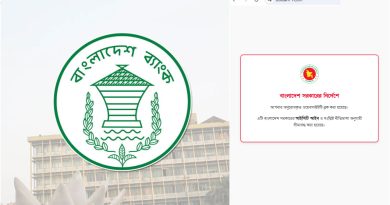Bangladesh’s treasury bill (T-bill) yields exhibited a mixed pattern on Sunday, with short- and medium-term rates declining while the longest-term rate edged up, as banks increasingly channelled surplus liquidity into government securities amid stronger money market inflows.
According to auction results, the cut-off yield — the interest rate — on 91-day T-bills fell to 10.20% from 10.24%, and the 182-day T-bill yield eased to 10.39% from 10.50%. In contrast, the 364-day T-bill yield inched up to 10.50% from 10.39%.
“Some banks are showing greater interest in short-term securities, encouraged by the recent improvement in liquidity inflows,” a senior Bangladesh Bank (BB) official said, attributing the trend to the central bank’s recent interventions in the foreign exchange market, particularly its purchases of US dollars from commercial banks.
On Sunday, BB bought an additional US$83 million from 11 banks through auction as part of its ongoing efforts to stabilise the exchange rate.
The central banker added that the current pattern in T-bill yields is likely to persist in the coming weeks.
That same day, the government borrowed Tk 55 billion through the issuance of three types of T-bills to partially finance its budget deficit.
Currently, four types of T-bill maturities — 14-day, 91-day, 182-day, and 364-day — are auctioned to manage government borrowing from the banking system. Additionally, five government bonds with tenures of two, five, 10, 15, and 20 years are traded in the market.






